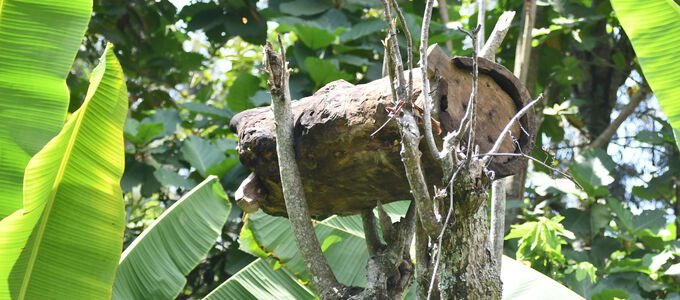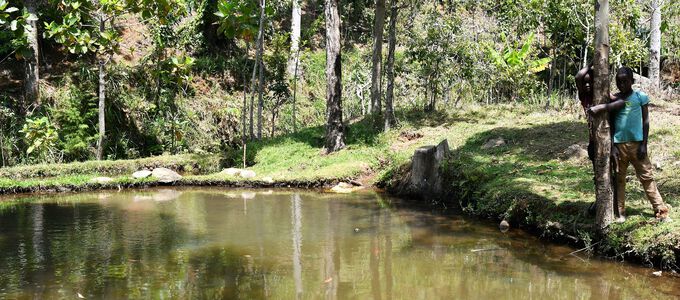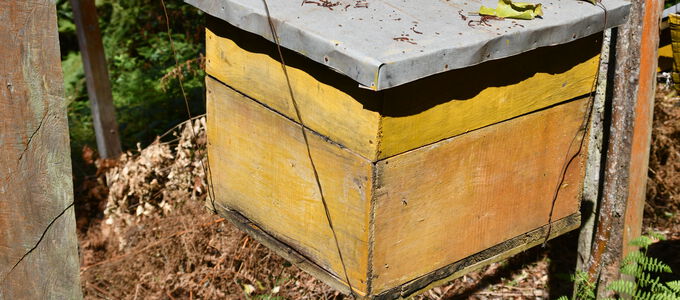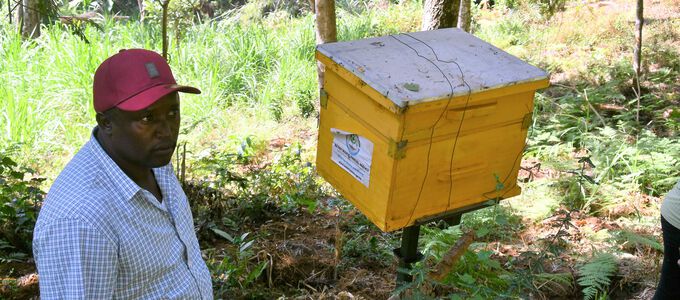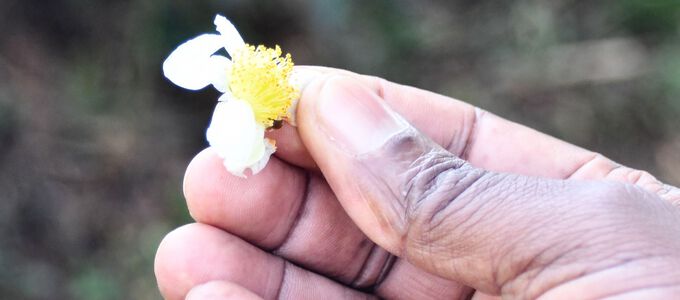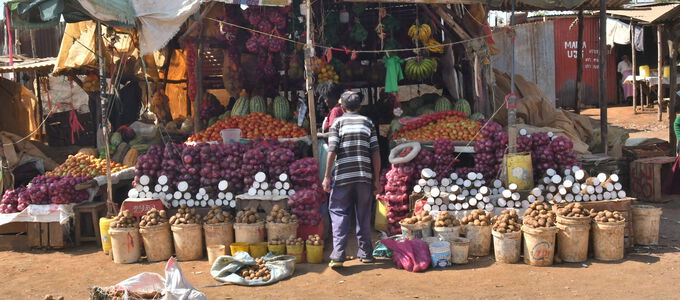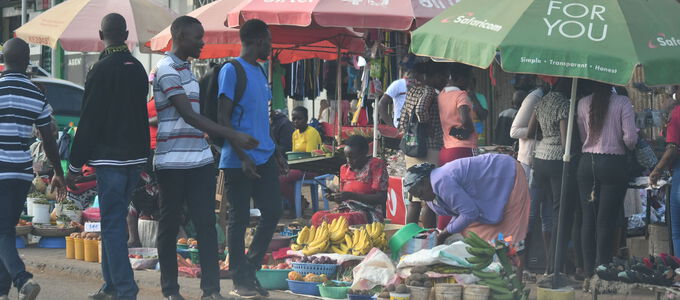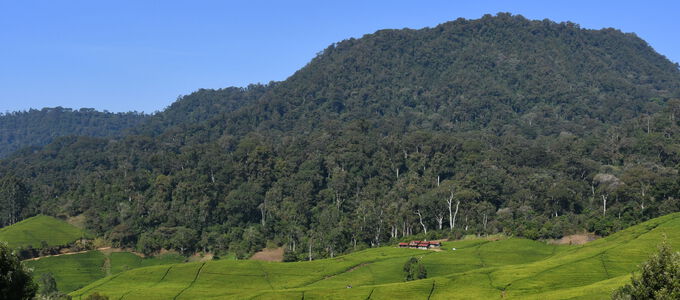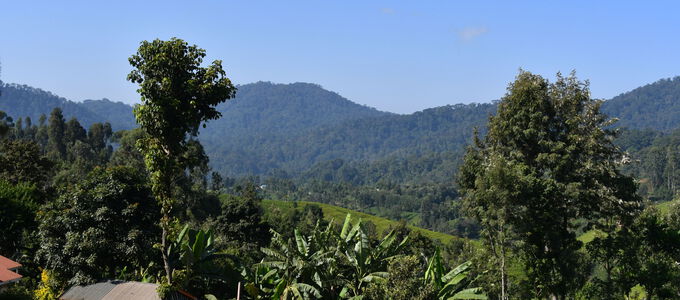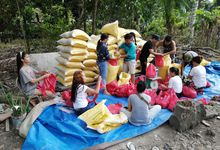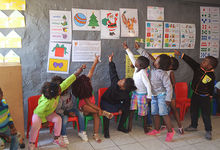A colony that helps fight poverty
Some 60 small farmers in Kenya are preparing to receive their first colony—a colony of bees, that is. To find out how the Apis Africana will sweeten their lives, let’s take a little tour to commemorate World Bee Day, which takes place on 20 May.
The hanging hives, also known as floating beehives, are to be suspended in trees with wire ropes in order to protect them from predators. That way, the honey badgers will not be able to reach the seductively fragrant honeycomb from below and the monkeys that jump onto the box from above will simply fall down from the swaying beehive without achieving anything at all.
In addition, the beehives are to be protected from direct sunlight as much as possible and be located near water—after all, bees do not like to work in the searing heat either. A place in the forest is ideal, since the plants there are not chemically fertilised, and that is where the bees prefer to fly.
NAK-karitativ, the aid organisation of the New Apostolic Church of Western Germany, has distributed beehives to two groups of small farmers in central Kenya in the Igembe region. This is part of the Igembe Project, which is managed jointly with KUMEA, the New Apostolic aid organisation of East Africa, to combat the famine caused by longer dry seasons.
From goats to bees
The project started by providing the farmers in Igembe with two female goats and one male goat each, and training them in goat husbandry, sustainable farming methods, irrigation, and compost management. In the meantime, there are two new groups, each comprised of 30 smallholders. Each of the farmers will receive two beehives. He or she will then use one of them privately for the benefit of his or her family, and the other beehive will be used collectively within the group. “Some of the people in the community will then be responsible for care and maintenance, while others will clear the undergrowth around the beehives to ensure they are easily accessible, and still others are responsible for production and marketing,” explains Lea König, the Junior Project Coordinator of NAK-karitativ..
The sale of honey will provide an additional source of income for the small farmers They will receive seven to eight dollars at the weekly market for their honey, which is of a higher quality than traditionally produced honey. This is enough for around five kilogrammes of rice. Although this is not enough to end the poverty of the people, it does help to alleviate it a little.
Providing assistance
In traditional honey farming, a hollowed out tree stump or thick branch is suspended from a tree, and when it is time to harvest, the beekeeper drives the bees away with a great deal of smoke. “This has an effect on the taste of the honey, as it absorbs the smoky aromas,” explains Lea König. “In addition, some of the bees can come to harm with this method of harvest. It isn’t so serious with the common worker bee, but often the queen of the bee colony is also injured, and then the whole colony disappears and never comes back.”
It is for this reason that KUMEA seeks out local agricultural consultants, including trained beekeepers. They teach the small farmers modern beekeeping techniques: there are several frames in a beehive. In some of them the queen bee lays her brood, while the worker bees collect the honey in the others. With a little smoke, the bees are distracted and then it is possible to remove the frames containing the honey. Of course, it is important not to take too much: there must still be sufficient honey for the bees.
In this project, Lea König and her team are the intermediaries between the local experts, the small farmers, and the funds in Germany. They finance the project and manage the administration. “We are the interface, so to speak, between the funds from the donors, the public funds, the project idea, and the partner organisation,” explains Lea König.
Environmental protection as a side effect
The new beekeepers lure the bees into their hives using lemon-scented leaves, local wine and beer, or banana peels. Incidentally, these are Apis Africana bees, and they have nothing to do with the African killer bee—a cross between the African and European bee, which is quite aggressive and has made life difficult for many beekeepers. The main objective of the project is to increase the income of the families involved. However, the fact that it also protects the local Kenyan bees, which are threatened there as are almost all bees in the rest of the world, is a positive side effect. The project participants will be able to harvest honey for the first time in July or August already. It will taste like classic forest honey, but less smoky, which means it will sell better too.


